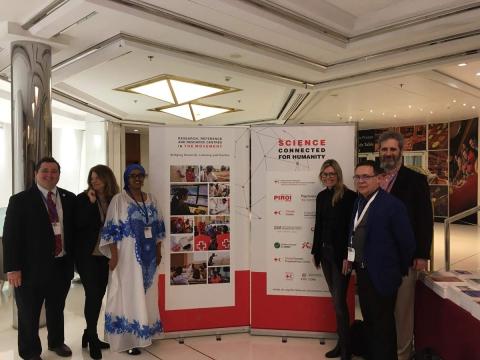10 Jahre Forschung im DRK
Im März 2009 startete das DRK zum ersten Mal ein Forschungsprojekt mit Projektpartnern im Bereich der zivilen Sicherheitsforschung. Dies war der Beginn einer bis heute erfolgreichen Forschungs- und Entwicklungsarbeit. Seit nunmehr zehn Jahren beteiligt sich das DRK Generalsekretariat aktiv an den relevanten (akademischen) Fachdiskursen und betreibt entweder eigenständig oder in Kooperation mit Partnern vor allem […]
10 Jahre Forschung im DRK Read More »


